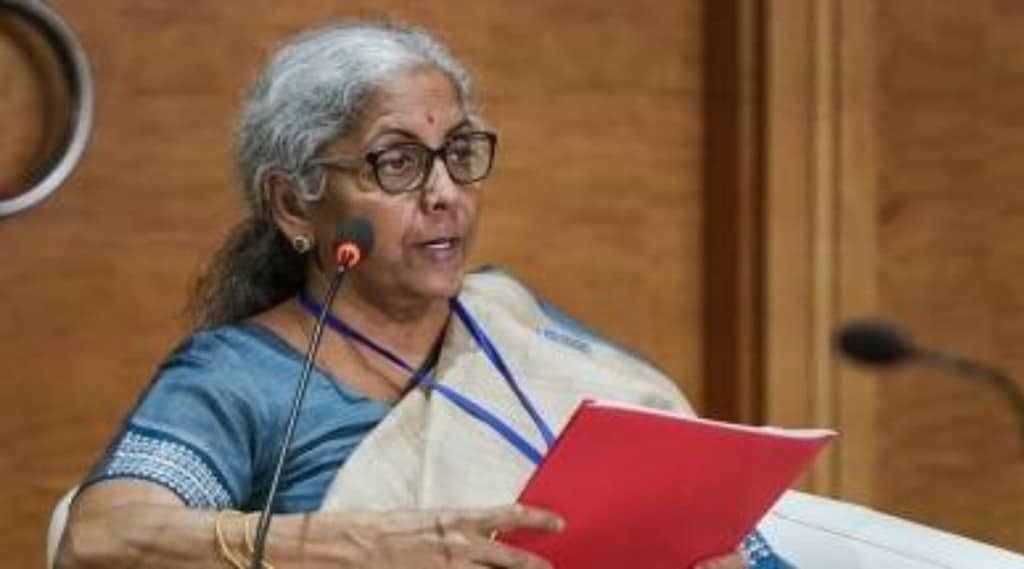Finance minister Nirmala Sitharaman on Tuesday highlighted the need for detailed deliberations at the upcoming G20 meetings under India’s presidency on the “spill-over effect” of the global turmoil, caused by actions of a few nations on emerging and low-income economies.
The minister listed eight priority areas — including reforms in multilateral institutions, global strategy to regulate cryptocurrencies and food & energy security in the wake of the Ukraine war — for discussions.
Also Read: India’s G20 Presidency and the next phase of industrial growth
Stating that India is still finalising the list of priorities for its G20 presidency, the minister said: “Particularly at a time when we are also facing the collateral spill-overs which are unintended… How much can countries like India or those in the middle or low-income bracket or emerging markets bear the brunt of spill-overs? Can you at all be ready for unpredictable spill-overs, and how much can you be ready?” The discussions on spill-overs, therefore, will be a priority, she said at the ICRIER’s G20 conference. India, however, is better placed than many others to tide over the turmoil, she added.
“Given that there is an emerging markets troika for the first time, shouldn’t the voice of emerging markets find more weight?” she asked. India is taking over the G-20 presidency from Indonesia in December and it will be succeeded by Brazil-the “troika” of developing countries.
The minister also called for reforms in the multilateral institutions, particularly the development banks, that have been pending for long and hardly reflect the changing realities of the 21st century world order. Analysts have long complained that multilateral bodies like the World Bank and the International Monetary Fund continue to be dominated by a few developed economies.
Also Read: G20 has great potential to work towards global good: Finance Minister Nirmala Sitharaman
Sitharaman said, “I think we have to understand how multilateral institutions, international financing institutions, are going to be better-reformed institutions. Are they going to serve with better vigour, have they become fatigued out, do they have newer thoughts, are they looking at 21st century ways of leveraging the funds they have? Do they know or do they want to bring in greater resources?”
Reforming these institutions is crucial because they themselves are not optimally leveraging the “endowments they have”, nor do they have any strategy to do so to address dynamic concerns of several countries, the minister stated.
To a question on whether sanctions imposed by the West on Russia have backfired, Sitharaman said this could be a part of ‘spillover’ discussions at the G20.
Asked if Western sanctions on Russia have backfired, Sitharaman said it could be a part of the deliberations on the ‘spillover’. “So certainly, members will have to talk about it. Actions taken at the early stages of the Russia-Ukraine war, whether it is sanctions on payments through the SWIFT, or subsequently on fuel trading … You also have probabilities of newer such things coming in. Those will have to be definitely discussed,” Sitharaman said.
Commenting on the issues relating to cryptocurrencies, the finance minister reiterated the need for a global strategy to regulate these virtual assets, stating that action by one single country won’t suffice to prevent their misuse for terror funding and money laundering.
Already, the IMF has warned of a possible recession in advanced economies next year. It has projected global growth to decelerate further to just 2.7% in 2023 from 3.2% this year. The World Trade Organisation expects global trade growth to ease to just 1% in 2023, from 3.5% this year. Sitharaman also stressed the need for a larger debate on sustainable development goals (SDGs) and the financing of such initiatives by developing and poor countries. “Can SDG goals be reached by financing ourselves that we end up not developing our resources but taking on more debt? So, ignite the debate again and talk about SDG again. The process of financing SDGs should be a lot more friendly towards lower-income and developing countries,” she said.


